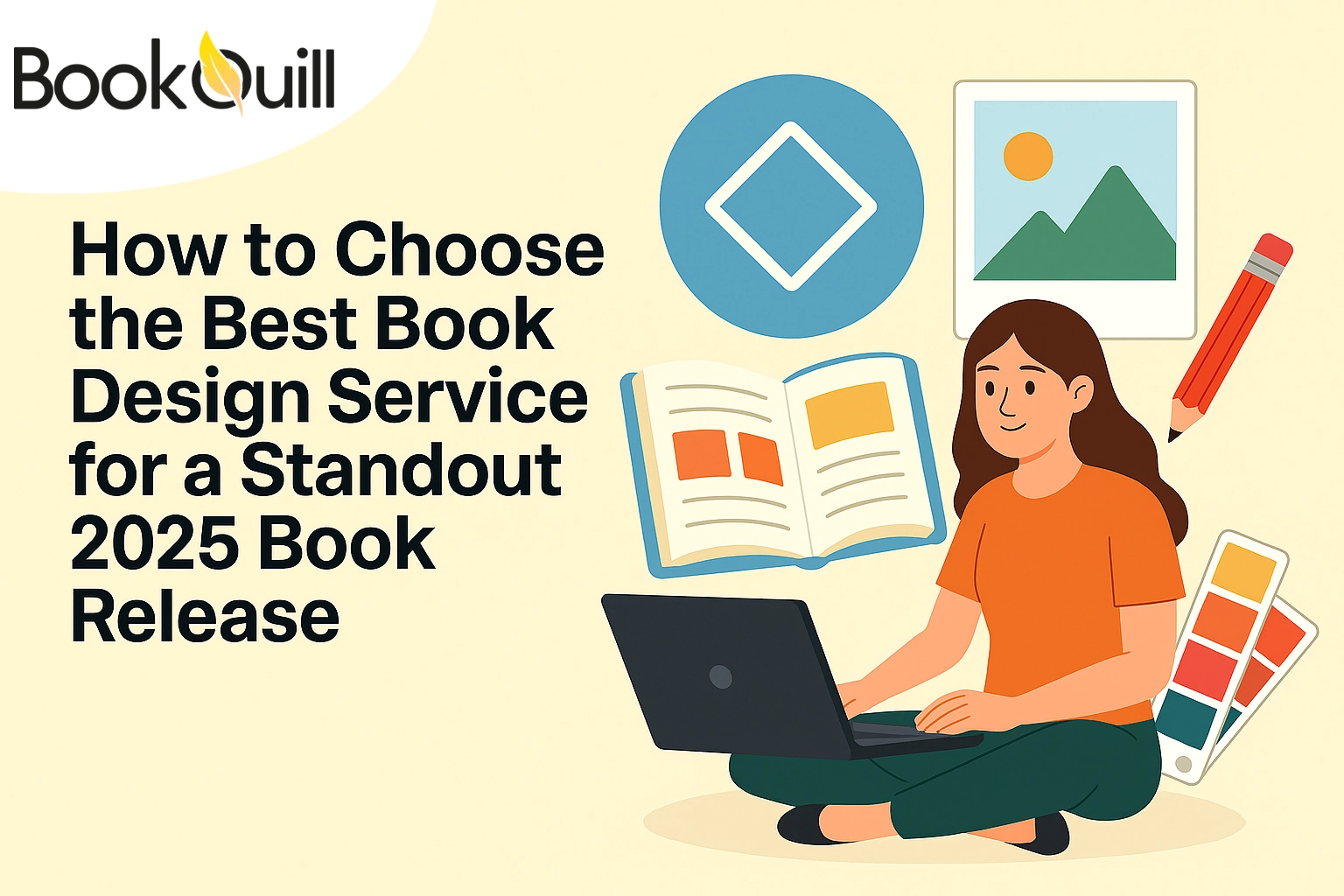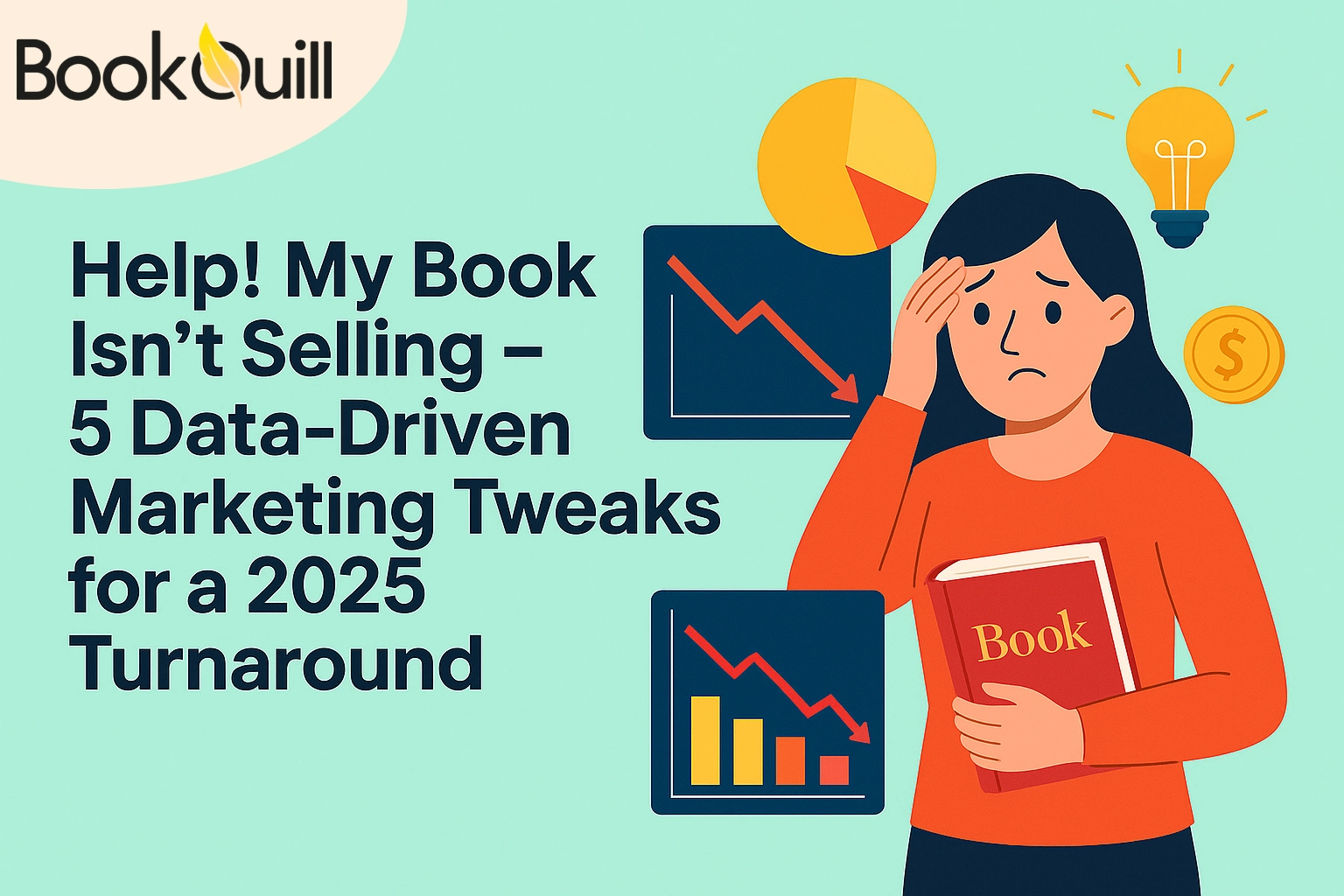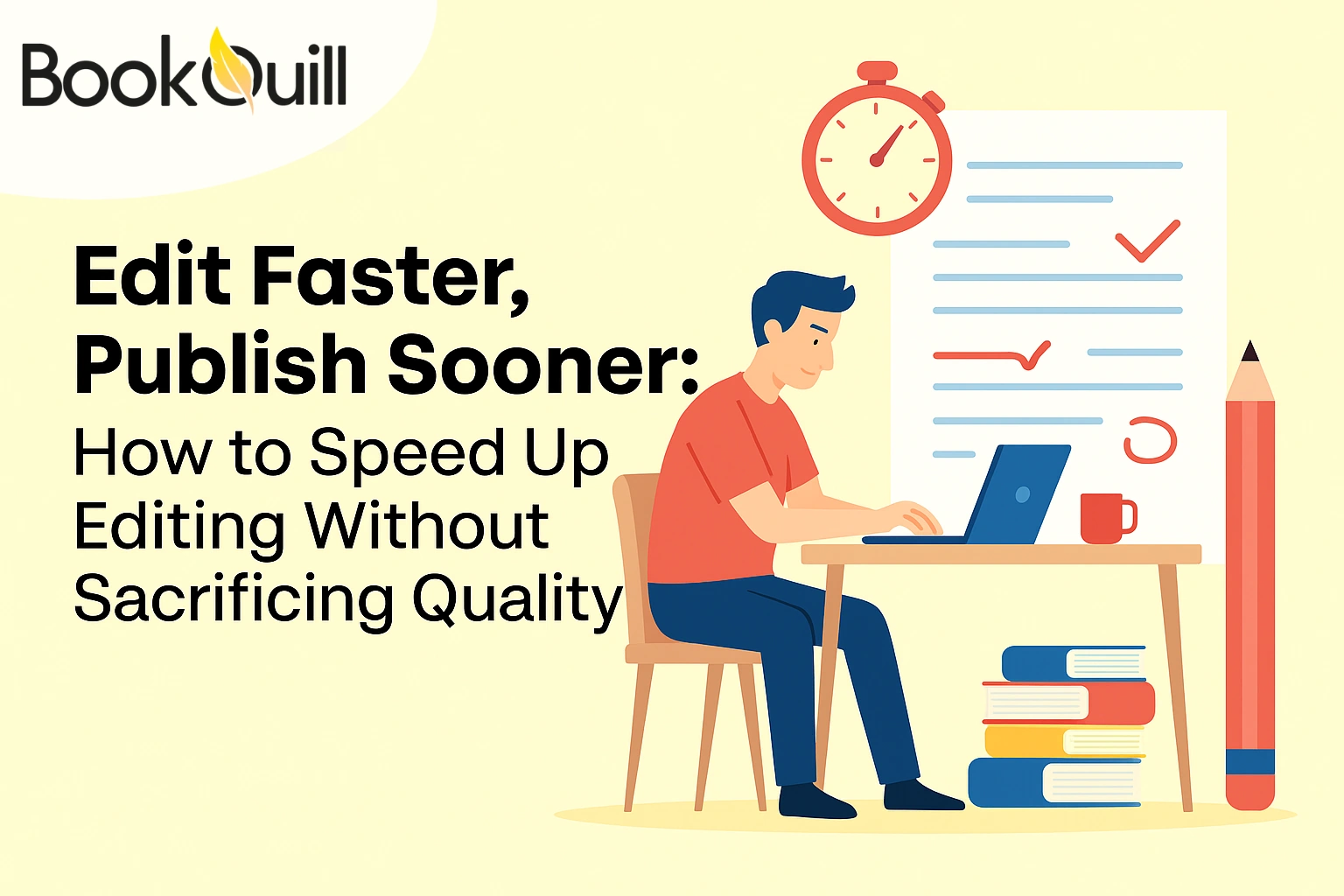Table of Contents
Explore Blogs
Trending on Ebook
Genre Mashups Are Booming – Why Blending Genres Is the Next Big Thing for Storytellers

Once upon a time, genres were polite little boxes that never dared to mix. Romance stayed on its swoony side, horror sat in its dark corner, and science fiction lived along in its intergalactic empire. But, if we talk about today, suddenly romance is running off with horror (Twilight), sci-fi is borrowing tropes from westerns (The Mandalorian), and fantasy has started sneaking into historical drama (Outlander).
So, in other words, genres are no longer staying in their own sandboxes blending genres is getting pretty common. They are climbing the fences, stealing each other’s toys, and throwing a wild party while we, the readers, eat popcorn and binge happily.
And just give it a minute, think about it. Why do you think the audience loves “Stranger Things?” Not just because it’s horror, but also because it’s horror + sci-fi + teen drama + government conspiracy thriller. And honestly, half of Netflix’s hits are genre mashups we didn’t know we wanted until they popped up in our recommendations.
So, yes, it does matter! Because genre blending isn’t just a trend anymore. It’s becoming the core of modern storytelling. Readers and viewers want something that feels familiar enough to hook them but surprising enough to keep them from yawning. And for storytellers, it’s no longer optional. To stand out in a world of content, learning to master the art of the genre mashup is basically survival.
In the following blog, we will be discussing what a hybrid genre is, why readers are hooked, how to do it well, and why it might just be the best strategy every storyteller needs.
Key Takeaways
- Genre mashups are no longer niche; they’re the mainstream, giving readers fresh yet familiar stories.
- Successful genre blending balances multiple genres while respecting the promises each makes to its audience.
- Hybrid genre examples like Stranger Things, Outlander, and Get Out prove mashups dominate books, film, and TV.
- Authors can avoid confusion in genre mixing by choosing one dominant structure and delivering clear payoffs.
- Working with professional ghostwriting services can help storytellers confidently create mashups that connect and sell.
Genre Mashup: “Wait, So What Is This Franken-Story?”
If you have ever sat down to write a novel and thought, “What if I added a dragon to my detective story?” Congratulations, that’s a genre mashup. But before we get ahead of ourselves, let’s define the basics.
In simple terms, a genre mashup is when two (or more) genres meet on equal footing and build a story together. Unlike a traditional story with a dominant genre and a subplot, mashups give both genres center stage. For example, a crime thriller with just a touch of romance. That’s cross-genre. A time-travel romance where the love story and the sci-fi mechanics share equal weight? That’s a mashup.
The difference might sound small, but it matters. Readers expect a certain rhythm from each genre. A romance has its happy-ever-after beats. A horror novel thrives on creeping dread and climactic reveals. When you mash them together, you’re essentially building a new kind of rhythm, something that borrows the spine from both, without letting either genre get overshadowed.
And yes, a mashup isn’t just tossing genres into a blender and hoping for the best. For example, randomly putting zombies into your mystery doesn’t make it brilliant; it makes it confusing. Genre mixing works when there’s balance, intention, and most importantly, respect for both genres.
So, why does this matter right now? Because audiences are changing. Thanks to binge culture, indie publishing, and endless streaming choices, readers are more adventurous than ever. They’re trained to expect surprises, and if we don’t give it to them, someone else will. The question for storytellers isn’t if you should go for mashups, but how you’ll pull it off without turning your story into Frankenstein’s monster.
And, if next time someone asks you, “What is a hybrid genre?” you can tell them, it’s not about smashing things together for shock value, it’s about creating something new that feels familiar and fresh at the same time.
Why Readers Can’t Get Enough: “Netflix Trained Our Brains for Mashups”
As modern audiences, honestly, we are spoiled. Between streaming services, TikTok trends, and indie publishing platforms, we can consume more stories in a week than our grandparents managed in a year. And all that content has rewired us. We no longer want “just a romance” or “just a thriller.” We want romance with dragons, thrillers with dark humor, or sci-fi with cowboy sheriffs flying spaceships.
Why? Because our brains crave innovation, but not too much novelty. We still want the comfort of familiar hits, like the hero’s journey, the love confession, the shocking twist, but we also want to be surprised along the way. And that’s exactly what genre blending delivers: a balance of the expected and the unexpected.
Take a minute and think about how Netflix presents shows. One night you’re binging Stranger Things and the next night, you’re into The Witcher, which is part fantasy, part political thriller, and part monster-of-the-week adventure. These shows succeed not because they fit neatly into a single box, but because they play with multiple genres at once. They give audiences variety without making them feel lost.
And it’s not just TV. Readers on Kindle Unlimited or Wattpad are loving mashups like fantasy-romance hybrids and cozy-mystery-with-a-twist stories. The data backs this up, too! Reports show that hybrid genre categories on platforms like Amazon have steadily grown, reflecting shifting reader preferences toward stories that don’t sit in just one lane.
So, the next time you’re worried your book feels “too weird,” remember that readers aren’t shying away from hybrids; they’re actively hunting for them. And the more original-yet-recognizable your genre mashup feels, the better chance it has of capturing their attention.
Mashup vs. Genre-Bending: Are They the Same?
Now, before we go tossing all genres into one chaotic pot, let’s pause and draw a line between genre mashups and genre-bending. They might look like cousins, but trust me, they behave very differently at family reunions.
A genre mashup is when two (or more) genres stand on equal footing. Each one contributes its spine, its DNA, its rhythm. Take “Outlander” for example. It’s not just a historical romance with time travel, but it’s equally a historical epic and a sci-fi time-slip story. Both genres matter. Both hold weight. Without one, the story collapses.
Genre-bending, on the other hand, is when you lean heavily on one genre while borrowing some flavor from another. Suppose your morning coffee with a little Baileys. It’s still coffee (the dominant genre), but with a little addition that makes it taste new.
The difference matters because it shapes reader expectations. If you promise a mashup, your reader wants two genres fully delivered. And if you promise genre-bending, they’re expecting one genre to lead while the other winks from the sidelines.
We know it’s a little confusing, and that is where many writers stumble. And that is why many go for bending before they dare to mash. It feels safer.
Both approaches are valid. Both can be brilliant. But clarity is key. If you know whether you’re mashing or bending, you can signal it clearly to readers and avoid those feared one-star reviews that start with, “I thought this was supposed to be…”
Examples: Books, Movies, and Series That Redefined the Industry
Honestly, theory is nice, but what really convinces us are the hybrid genre examples that worked. Stories that smashed two or three genres together and still managed to attract readers and viewers.
1. Books That Played Mad Scientist (and Won)
- Good Omens (Neil Gaiman & Terry Pratchett): Fantasy, comedy, apocalypse drama. A literal mashup of the end of the world and British humor, proving that disaster can be hilarious.
- Red Rising (Pierce Brown): A mixture of sci-fi dystopia, political intrigue, and mythological undertones. It’s The Hunger Games meets Gladiator, but in space.
- Outlander (Diana Gabaldon): Romance meets historical fiction meets sci-fi. It’s time-travel love with tartans and war politics.
2. Movies That Nailed the Mix
- Get Out (2017): Horror and social commentary. Jordan Peele merged psychological terror with a sharp critique of systemic racism, creating a story that haunted you long after the credits.
- Guardians of the Galaxy (2014): Sci-fi and comedy with a sprinkle of family drama. Space opera meets dad jokes, and it somehow works.
3. TV Shows That Refused to Pick One Box
- Stranger Things: Horror + sci-fi + teen drama + ‘80s nostalgia. No one genre dominates, and that’s why it works.
- Cowboy Bebop: Anime that mixed sci-fi with westerns and noir.
What’s fascinating is that these aren’t niche coincidences. They’re hits. They’ve proven audiences are hungry for stories that break the mold.
This is where things get exciting for storytellers. If these creators could take risks and succeed, it means the door is wide open for more mashups. We don’t need to fear confusing readers; we need to fear boring them.
Why It’s the Next Big Thing?
If you want to know where storytelling trends are heading, just follow two things. The readers and the money. And right now, both are pointing in the same direction, straight toward genre mashups.
1. Readers Want Fresh Hooks
The truth is, single-genre stories are struggling to stand out in a world where thousands of new books hit Amazon every single day. Readers have already seen everyone. What makes them stop scrolling is a story that feels like both a comfort zone and an adventure at the same time. That’s what genre blending provides.
A thriller-romance hybrid? Now we’re intrigued. A fantasy novel with a crime procedural backbone? Tell us more. Readers want to feel like they’re getting something unique, and mashups offer exactly that.
2. Hollywood and Publishers Are Betting Big
Streaming platforms like Netflix, Hulu, and Amazon Prime are pouring millions into mashup shows because they know mixed genres hook wider audiences. Why pick between horror fans and sci-fi fans when you can get both in one series? Publishing houses are catching on, too. Walk through a bookstore and you’ll see hybrid categories like “romantasy” (romance + fantasy) or “cli-fi” (climate + science fiction) coated everywhere.
3. Independent Authors Are Breaking New Ground
It’s not always big publishers setting the trend. Self-published and indie authors have been experimenting with mashups for years, free from corporate hand-wringing about whether “vampire detectives” are too risky. And guess what? Readers loved it.
4. Follow the Money, Find the Future
When audiences demand it and publishers chase it, you know it’s not just a fad, but it’s the next big wave. And to stand out in this oversaturated market, you need more than solid writing. You need a hook that twists genres together in a way readers can’t ignore.
Or, to put it boldly, it turns out that breaking the rules pays better than following them.
The Dark Side of Mashups
Okay, let’s slow things down a little. Genre mashups may be the shiny new toy in the storytelling sandbox, but like all toys, they come with sharp edges. When done well, mashups go best. When done poorly, they are chaotic and hard to sit through.
1. A Confusing Tone Betrays the Reader
Every genre comes with certain promises. Romance readers want their happily-ever-after (or at least happy-for-now). Thriller fans demand nail-biting suspense and a satisfying resolution. Horror readers expect fear, dread, and catharsis. If you mash genres but fail to honor these expectations, you risk confusing or, worse, distancing your audience.
2. Marketing Headaches
If your book doesn’t fit neatly into a shelf, marketing can feel awful. Where do you list it? What cover signals the right vibe? Readers need to know, at a glance, what kind of ride they’re signing up for. A muddled pitch like “It’s a little bit of everything!” rarely works, unless you’re Netflix with an algorithm that shoves it in front of millions of eyeballs.
3. Famous Flops
Plenty of ambitious mashups have failed because they leaned too heavily on tricks over substance. Remember Abraham Lincoln: Vampire Hunter? Cool premise, but the execution couldn’t balance history with horror in a way that felt satisfying. Thus, we get the lesson that genre mixing only works when both halves are respected and developed.
4. The Cocktail Analogy
Think of it like bartending. A margarita works because tequila and lime belong together. Toss in milk or pickle juice, and you’ve got a horror no one wants. Genre mashups fail when the flavors clash instead of complementing each other.
So yes, mashups are the “next big thing,” but they’re not a license to throw spaghetti at the wall to see what sticks.
How to Do It Well? Your Mashup Survival Guide
So, you’ve decided to take the plunge and try your hand at a genre mashup.
✔️ Start with a Dominant Structure: Choose one genre to serve as the backbone, then layer the second (or third) genre on top like seasoning.
✔️ Respect Both Genres’ Rules: When you invite two genres into one story, you’re also inviting their fans. They’re showing up with expectations. If you promise them both, you need to deliver both.
✔️ Test with Beta Readers: Your story may sound brilliant in your head, but will it read that way? The only way to know is to put it in front of readers who love those genres.
✔️ Use Comparisons Wisely: Building a reader list means you can pitch your unique mashup directly to the fans most likely to love it. Use tools like MailerLite (our pick for easy, affordable author email marketing).
What does it mean for Storytellers?
Storytelling has always evolved with audience tastes, and right now, audiences are loudly declaring that they don’t want to be boxed in. Why should you be?
1. Flexibility Is the New Power Move
Writers who can pivot between genres, or mash them up, are future-proofing their careers. Think about it! The market might cool on dystopian YA, but if you can spin dystopia into romance or fantasy, you’re not out of the game. You’re just reshaping the rules to suit your strengths.
2. Creative Freedom Beats Genre Policing
Once upon a time, “genre purity” mattered. Romance had to follow a rigid formula, mysteries couldn’t wander too far off the case, and sci-fi had to stay rooted in hard science. Today? The lines are blurred. You don’t need permission to write a paranormal cozy mystery or a romantic thriller with dragons.
3. The Career Angle
For authors looking to grow beyond one-off projects, mashups can build staying power. A single-genre book might sell well, but a mashup builds its own niche fanbase. Readers fall in love with the uniqueness, and they’ll follow you. This is also where professional ghostwriting services come into play. Many authors, especially high-profile ones, lean on ghostwriters to help them experiment with new genres or expand into hybrid projects without losing consistency.
Conclusion
If there’s one takeaway from this whole mashup conversation, it’s that the age of one-genre-only storytelling is over. Readers are craving a hybrid genre. They want the familiar comfort of a romance, but with the edge of a thriller. They want the adrenaline of sci-fi, but with the laughs of a comedy. They want to be surprised, but not confused. And storytellers who can deliver that balance will be the ones audiences remember.
But remember, genre mashups only work when you break rules with purpose. Tossing in random tropes for shock value? That’s lazy. Building a story where genres genuinely enhance each other? That’s art.
So, whether you’re writing your debut novel, drafting your tenth screenplay, or even collaborating with an affordable ghostwriting agency to bring your idea to life, the message is the same: Don’t play it safe.
And if you’re worried about whether this kind of writing has a place in the market? Reach out to us with your idea. We are the top ghostwriting services provider, and we can help you with almost everything, from writing your book under your very own name to genre mashups and even publishing your book.
Contact us today!
Frequently Asked Questions
What is a hybrid genre in storytelling?
A hybrid genre is a story that combines elements from two or more genres on equal footing.
Why are genre mashups so popular right now?
Because readers crave stories that feel both fresh and familiar.
Can mixing hurt my story?
Yes, if you don’t balance the genres carefully. Each genre comes with expectations, and failing to meet them can frustrate readers. Mashups work best when both genres are respected and delivered fully.
How do affordable ghostwriting services differ from premium ones?
Affordable ghostwriting services focus on cost-effective solutions while still providing professional polish, whereas premium services may include extras like marketing or publishing guidance.
Which are the best ghost-writing companies for authors?
The best companies combine skilled writers, transparent pricing, and strong project management to ensure your book reflects your vision.
Affiliate Disclosure
Note: Some of the links in this post are affiliate links. This means if you click on them and make a purchase, we may earn a small commission at no extra cost to you. We only recommend products and services we genuinely trust and believe will be useful to our readers. Your support helps us continue creating honest, helpful guides like this one. Thank you!
About Author
Hi My name is Micheal Adams, When I am not watching horror movies and helping my kids with homework or reading my favorite fantasy/supernatural novels – I’m writing to guide aspiring authors. I focus on exploring and simplifying both the technical aspects and the often-overlooked details of book writing and publishing so I can empower new writers to climb the Amazon bestseller list and connect with more readers.





